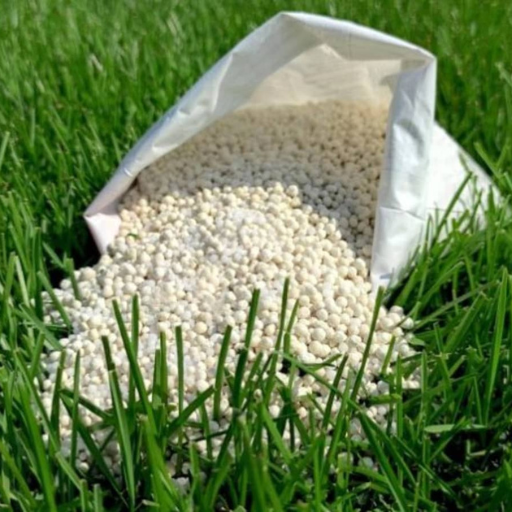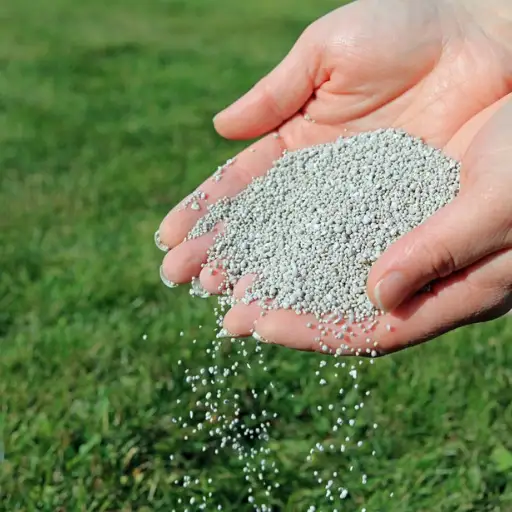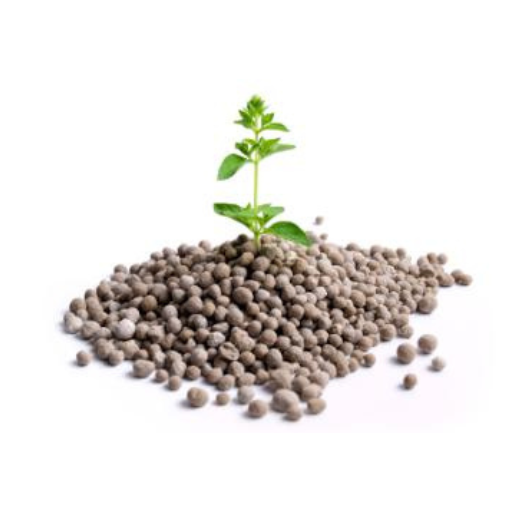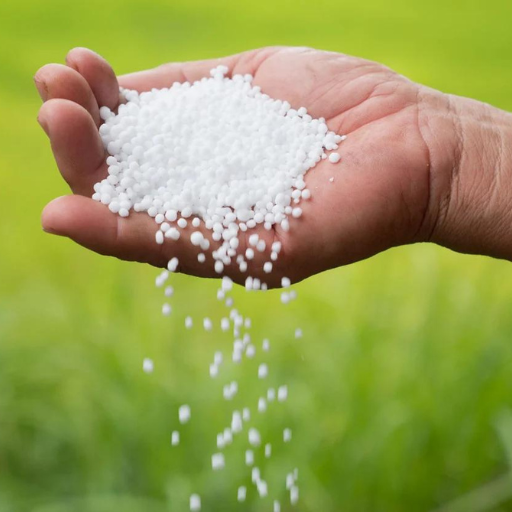Maintaining a lush, vibrant lawn and a thriving, productive garden requires more than just regular watering and sunlight; it demands the right nutrients to support healthy plant growth. In recent years, there has been a growing movement toward sustainable and environmentally friendly gardening practices. One of the key components of this shift is the use of organic granular fertilizer. This type of fertilizer promises a wealth of benefits not only for your plants but also for the soil and overall ecosystem. In this blog, we will delve into the reasons why organic granular fertilizer is an excellent choice, exploring its benefits, how it works, and practical tips for its application. Whether you’re a seasoned gardener or just starting out, this guide aims to provide valuable insights to help you cultivate a healthy and flourishing green space.
What is Organic Granular Fertilizer?

How to Understand Organic Granules
Organic granular fertilizer is a type of fertilizers derived from natural organic stuffs like compost, manure, bone meal, and other plant or animal-based substances. They are when broken down release nutrients slowly over time to facilitate continuous growth of plants as well as enrichment of soil. Their lack of synthetic chemicals also makes organic granules environmental friendly for human population. In addition, the organic granules also improve soil structure by enhancing microbial activities and retaining moisture, which in turn foster a healthier and more resilient garden ecosystem.
Benefits of Using Organic Fertilizer
- Better Soil Health: The soil structure is improved through these organic granular fertilizers thus creating a conducive platform for root growth. These types of fertilizers when decomposed add up organic matter in soils that led to better aeration and drainage as well water retention abilities of the soil. Consequently this has further enhanced the fertility of the entire soil.
- Environmental Friendly: As opposed to synthetic fertilizers which have their origin from natural sources hence reducing the chances for chemical runoff into bodies waters leading to pollution and ecosystem damages. Additionally using them lowers carbon footprint due to production and transportation processes involved with artificial ones.
- Promotes Biodiversity: By use of organic fertilizers one creates an environment that fosters healthy soils thereby encouraging beneficial microorganisms such as fungi, earthworms among others. Also they aid in nutrient cycling where these organisms decay matter that is naturally occurring thus keep off diseases from the plants.
This enables them make informed choices on gardening practices that are sustainable as well as productive.
Comparing Organic vs Synthetic Fertilizers
When choosing between organic or synthetic plant foods, there are several considerations including effects on soil health, impact on the environment and overall efficacy among others.
Soil Health:
- Organic Fertilizers: Enhance the structure of soil; increase its content with organic matters and promote presence of beneficial microbes leading to better aeration, drainage and water holding capacity for soil.
- Synthetic Fertilizers: Provisions of nutrients that are easily taken up by plants. In the long run they can therefore cause break down of soils rendering them incapable of sustaining healthy plant growth.
Environmental Impact:
- Organic Fertilizers: Produced from natural materials thus reducing chemical runoff into water bodies and potential pollution. It also reduces the carbon footprints associated with production and transportation of fertilizers.
- Synthetic Fertilizers: The level of energy used in their manufacture is often high resulting to greenhouse gas emissions. They contribute to nutrient runoff thus leading to water pollution including ecosystem destruction.
Nutrient Availability and Release:
- Organic Fertilizers: It feeds plants steadily as it decomposes releasing nutrients slowly thereby preventing any chance nutrient burns which may occur due to sudden nutrient availability while maintaining the balanced nature of soil ecosystems.
- Synthetic Fertilizers: They accelerate plant development through provision of exact nutrition formulas that gets absorbed instantly after application; however this promotes over-fertilization and leaching effects on certain plants.
Cost and Application:
- Organic Fertilizers: Generously expensive compared to synthetic options due to reduced concentration levels necessitating application in larger amounts than required by others while also requiring frequent usage to maintain soil fertility.
- Synthetic Fertilizers: They are usually cheap as well as easier to apply which involves using small quantities because they contain high amounts of nutrients. Such fertilizers produce immediate outcomes but may demand careful monitoring so as not be overused.
The above points help gardeners consider the kind of fertilizer they should use taking into account their gardening goals, environmental policies, and demands for good soil health respectively.
How Does Organic Granular Fertilizer Work?
Role of Soil Microbes in Plant Growth
Locating organic matter into nutrients that plants can take up readily is an important function performed by soil microbes in plant growth. These include bacteria, fungi, and protozoa that decompose organic materials thereby releasing essential nutrients such as nitrogen, phosphorus, potassium among others to the soil. In addition, some microbes establish symbiotic associations with roots of plants like mycorrhizal fungi which enhance nutrient and water uptake. Healthy populations of soil microbes are maintained through the application of organic granular fertilizers which improves soil structure, increases nutrient availability and supports healthy growth of plants.
Nutrient Release that is Slow
Organic granular fertilizers have a slow release mechanism which means they gradually supply essential elements to the plants over time. The compounds in the fertilizer are mainly organics hence must be broken down by microorganisms within the soils before being available for plant uptake. This slow release ensures a consistent supply of nutrients thus reducing chances of leaching while improving root development leading to sustained growth. Organic granular fertilizers on the other hand provide a more balanced and long-term approach to soil fertility management unlike synthetic ones that give fast nutrient boost. Moreover, their slow release prevents sudden overflow of nutrients which may result into over-fertilization hence damaging plants if not controlled well. Gardeners who use organic granular fertilizers can create a more productive growing environment that is resilient.
Soil Structure and Fertility Improvement
When it comes to making improvements on soil structure and fertility, then organic granular fertilizers are key players here. These fertilizers introduce organic matter into the soils thus promoting formation of soil aggregates enhancing air spaces between them as well as water retention abilities. Presence of such organic material encourages beneficial microbial activity aimed at converting these elements into forms that plants easily absorb. Besides this, gradual breakdowns enable increase in cation exchange capacity (CEC) thereby boosting its ability to hold and supply vital nutrients like nitrogen that the plants need. Also, the presence of more organic matter supports a rich soil ecosystem which enhances fertility and health of soils leading to higher yields and healthier crops in general.
What Nutrients Are Found in Organic Granular Fertilizer?

Significance of Nitrogen, Phosphorus, Potassium
Nitrogen (N), phosphorous (P) and potassium (K) are major nutrients that are found in organic granular fertilizers used for plant growth. These three components – NPK – have different roles in plants.
Primarily, nitrogen helps to promote the growth of leaves that are lush and green. It also aids in the creation of chlorophyll which is useful in photosynthesis. Adequate nitrogen levels lead to robust vegetative growth and higher leaf production.
Phosphorus on the other hand plays a very critical role with respect to energy storage and transfer within a plant. During cell division and new tissue development, it is involved in DNA, RNA and ATP formation. Additionally, it’s an important nutrient during root development as well as flower and fruit formation.
Potassium is responsible for regulating various effects in physiological processes of a plant such as water uptake by roots, photosynthesis as well as enzyme activation by materials such as ATP. Beyond this potassium strengthens cell walls hence improving disease resistance resulting into better fruits and flowers quality. In addition to this water use efficiency improves making them more drought resistant.
Through these nutrients organic granular fertilizers provide balanced nutrition for sustained growth and overall health of plants.
Understanding 4-4-4 Fertilizer Formula
4-4-4 fertilizer formula simply refers to a formulation where the three major macronutrients namely nitrogen (N), phosphorus (P) and potassium (K) are blended together at equal compositions each being 4% of total composition respectively. This uniform proportionality makes 4-4-4 fertilizer appropriate for use on different kinds of crops at any stage of development because it ensures that they receive a regular supply of nutrients required for healthy root system development while ensuring vigorous foliar bloom with plenty fruits or flowers produced throughout the season under cultivation.The even distribution of NPK combine through this formula is critical in providing a constant amount of each vital nutrient to feed plants hence supporting balanced development and minimizing the chances of deficiencies.
Additional Nutrients for Plant Success
The primary macronutrients needed by plants for growth are nitrogen, phosphorus and potassium. Nonetheless, there are other elements that are helpful in improving plant vigor to increase yields. These secondary nutrients and micronutrient include;
- Calcium (Ca); Calcium acts as an important structural component of cell walls and membranes, it also helps in building strong, healthy root systems with good nutrition uptakes by plants.
- Magnesium (Mg); Magnesium refers to a mineral that is known as chlorophyll. It also serve in the activation of various enzymes used within plants during growth and development stages.
- Sulfur(S): Sulfur serves protein synthesis but it can also be involved in chlorophyll formation as well as helping nitrogen fixation process among legumes.
- Micronutrients: Other very important elements which include iron (Fe), manganese (Mn), zinc (Zn), copper (Cu), boron (B), molybdenum (Mo) and chlorine(Cl) required only in small quantities but perform many functions physiologically or biochemically within the plant. Iron is essential for synthesis of chlorophyll while enzyme activity along with protein synthesis necessitates zinc among others.
Adding these supplements to the fertilizer regime will lead to better uptake by the plant thereby increasing productivity leading to higher yields per acreage. Organic granular fertilizers often contain a balanced mix of these secondary and micronutrients thus enhancing plant growth even under adverse conditions.
How to Apply Organic Granular Fertilizer?

Effective Application Techniques
To make sure your plants get all the advantages of organic granular fertilizer, you need to apply it properly. The first step is to read product labels for crop-specific rates of application and timing so that you do not overdose your plants thus destroying them and polluting environment.
- Soil Preparation: Before applying the fertilizer, clear the soil of any weeds and debris. Also, loosening makes it easy for the granules to be mixed well in soil and also enhances nutrient uptake.
- Even Distribution: Apply evenly granular fertilizers on top of the soil. Depending on size of area this can be done by hand or with a broadcast spreader for larger gardens or lawns. This will help to prevent “hotspots” with high concentrations of plant nutrients.
- Incorporation: Take a rake or hoe and lightly move it across the fertilizer layer towards the top 1-2 inches of soil. The granules must mix nicely making them begin breaking down so that they can release some nutrients which are able to get inside plant roots.
- Watering: Water thoroughly after applying. This aids the breakdown process as well as making sure that these particles shed their contents into soils through reaching at plant roots faster than otherwise would have been possible.
- Timing: It is best if organic granular fertilizers are applied during growing season such as early spring and another midseason period depending on specific needs of crops avoidance during extreme hotness or coldness when efficacy may be low.
By following these proper application methods, you will ensure that your garden receives full benefits from organic granulated fertilizers which in turn encourages healthy and productive crops.
Frequency Of Application For Different Crops
The frequency at which organic granular fertilizers should be applied varies from one crop to another. Usually most vegetables require a dose at planting followed by repeating every 4-6 weeks throughout growing season while leafy greens like lettuces as well as spinach may be fed more often at approximately 3-4 week intervals because they grow fast.
Tomatoes and pepper in terms of fruiting vegetables will be subjected to an initiation dosage at planting with recommendation that further feeding should occur every four or six weeks all through the growth stage. Root vegetables such as carrots, potatoes etc. fertilized during sowing time and before mid-season.
Usually spring application meant for new growth followed by a late spring or early summer feeding covers perennial species that include fruit trees together with berry bushes. Lawns as well as ornamental plants may also require fertilizer applied early in spring, then after every 6-8 weeks until growing season is over.
To ensure healthy and productive growth through continuous supply of necessary supplements to specific crops, it is important to adjust the frequency of applying fertilizers differently.
Using All-Purpose Organic Granular Fertilizers
All-purpose organic granular fertilizers are multi-purpose since their balance of nutrients makes them suitable for majority of plants grown by gardeners. These typically contain nitrogen (N), phosphate (P) and potassium (K) commonly called NPK plus other essential trace elements involved in general plant health. Just spread the granules evenly over the soil surface around your plants then water properly. It is recommended to start using these fertilizers on first day of farming season and then regularly based on requirements among cultivated plant types within span of four or six weeks only. The guidelines outlined above will help gardeners provide enough nutrients to sustainably grow large crops with strong yields year after year.
What Are the Best Practices for Using Organic Granular Fertilizer?

Preserving Natural Fertility of Lawns
There are a few key practices that I have found effective in maintaining organic lawn fertility. Firstly, I ensure that my lawn has a balanced pH level by regularly soil testing and correcting it with either lime or sulphur when necessary. Also, I make sure to apply organic granular fertilizers on schedule, starting in early spring and continuing every 6-8 weeks throughout the growing season. These fertilizers feed the plants slowly which is important for providing essential nutrients without using chemicals too harsh on lawns as compared to synthetic products. Besides, amending compost into soil enhances soil structure, moisture retention and supports beneficial microbial activity. This way, my lawn remains healthy all year round.
Boosting Root Development
The way I enhance root development revolves around creating healthy soil environment and supplying the right nutrients. First of all, I see to it that the soil is well aerated through regular aeration and the addition of organic matter such as composts. By so doing, roots can grow deeper into the ground as well as access more nutrients and water. As well for instance, phosphorus-based high grade organic granules are also used because they facilitate strong root growth especially where they contain this nutrient in abundance. Additionally, it is recommended not to water frequently but rather deeply so that plant roots penetrate further into the ground. Therefore, by adhering to these measures I support vigorous plant growth through developing robust root system.
Optimized Planting Dates and Conditions
To maximize planting times and conditions firstly; I familiarize myself with specific demands of grasses or types of plants that are being raised up thereon making note of local climate then prepare for relate plantings according to suggested growing seasons of each particular type of vegetation. Late spring/early fall periods thus provide good planting opportunities for cool-season grasses because during those times temperature levels become ideal while humidity returns back following summer heat waves (Grass Seed, 2010). Similarly, for warm-season grasses, the best time to plant is late spring through early summer when the soil temperature has become uniformly warm. At the same time, I perform a thorough ploughing and supplementing of soil with compost so as to have nutritious ground.
This helps me avoid bad weather patterns such as heat waves or heavy rains which might stress new plants if they are planted just before. I am able to give my lawn a head start by planting in mild and stable weather conditions.
Frequently Asked Questions (FAQs)

Q: What are the advantages of using organic granular fertilizer on your lawn?
A: Organic granular fertilizer is great for lawns as it betters soil consistency, enhances microbial activity and provides nutrients in a slow manner thereby making lawns healthier and greener.
Q: How does Plant Success Organics Granular™ promote healthy growth in plants?
A: Plant Success Organics Granular™, on the other hand, aids healthy plant development by supplying the plants with balanced essential nutrients including minerals and organic nitrogen. Its formulation also helps to improve plant establishment and overall plant growth and vigor.
Q: Can I use granular organic fertilizer for shrubs and turf?
A: Absolutely! It can be used on both shrubs and turf where it supplies vital nutrients that support healthy growth of different types of plants.
Q: How do organic granular fertilizers impact soil health?
A: This is because these fertilizers add organic matter, increase microbial activity within the soil as well as release nutrient slowly which nourishes plants over time. Thus making soil healthier and richer.
Q: Why should I choose an all-purpose fertilizer for my garden?
A: An all-purpose fertilizer is good for growing different types of plants like vegetables flowers, shrubs among others since it contains a mix of several necessary nutrients. This makes it convenient but effective in maintaining an overall garden health.
Q: What role do naturally occurring microorganisms play in organic granular fertilizers?
A: They facilitate decomposition of organic matter into elements that can be utilized by plants. Additionally they also make soils more fertile, help enhance their structure thereby promoting healthy plant growth.






